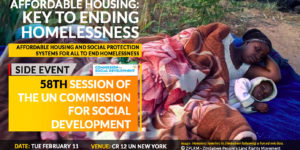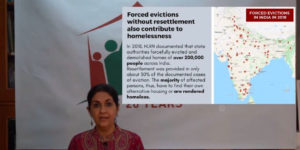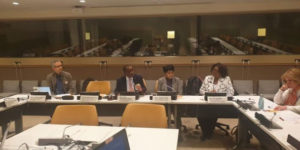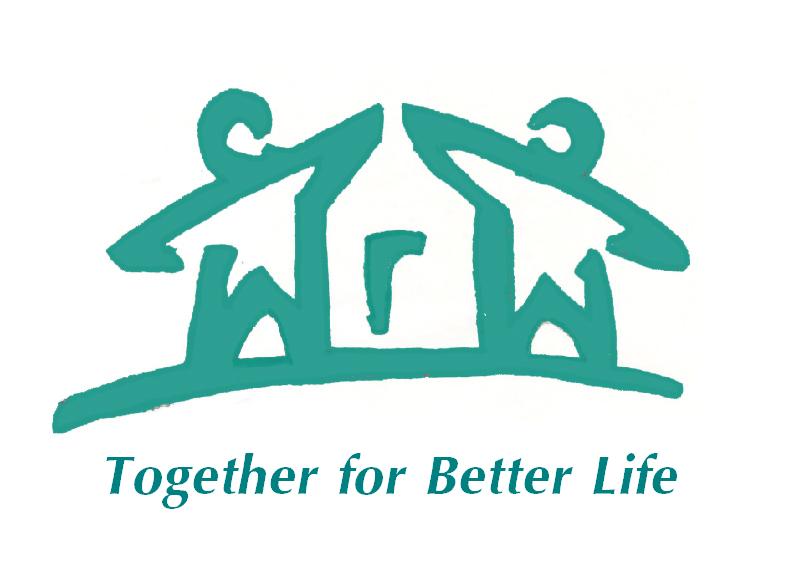The fifty-eighth session of the Commission for Social Development (CSocD58) took place from 10 to 19 February 2020. Habitat International Coalition hosted a side event in which HIC applied its Human Rights Habitat Observatory approach by aligning states’ permanent human rights obligations with their voluntary and temporal global policy commitments toward resolving habitat problems, challenges and dilemmas. This side event built on the outcomes of the fifty-seventh session of the Commission for Social Development that have discussed fiscal, wage and social protection policies to address inequalities and challenges to social inclusion.
[Click here to read the event description]
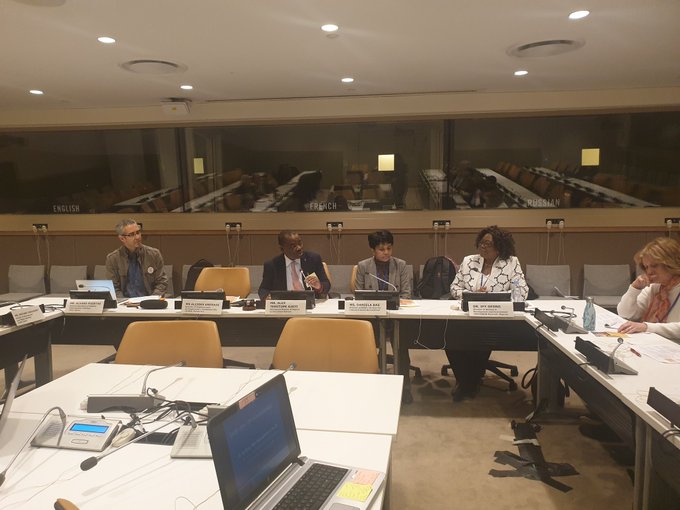
Key messages
The Key messages of the event examines the issue of homelessness in the context of remote and immediate causes as well as possible short and long term solutions:
– Addressing inequalities and the challenges to social inclusion can actually reduce the problems of housing and shelter.
– Forced evictions lead to extreme poverty and homelessness, affecting the most disadvantaged sectors of local communities, in particular women and children.
– The pressure exerted by the private and public sector (monoculture farming, extractive industries, private ownership of arable land, etc.) and the lack of public/social services or job opportunities in rural areas is fuelling a mass migration from rural to urban areas globally, being Africa one of the most affected regions. The affected populations face extreme difficulties to settling in these overcrowded areas where basic services are non-existent.
– The issue of homelessness must first address its immediate causes as well as possible short and long term solutions.
– Tackling all drivers of homelessness such as evictions, violence against women, poverty, inequality, social exclusion, as well as reducing risks associated to natural disasters, etc. is a priority for both state and non-state actors.
Recommendations
The participants shared the following recommendations to address possible short and long term solutions to the global challenge of homelessness:
- The Human Right to Adequate Housing is a fundamental component of the right of everyone to an adequate standard of living for herself/himself and her/his family, including adequate food, clothing and housing, and to the continuous improvement of living conditions.
- States and all spheres of government must take appropriate steps to ensure the realization of this right as stated by The International Covenant on Economic, Social and Cultural Rights, currently ratified by 152 States parties.
- States are bounded by national and international law to fulfil their right to adequate housing, but housing production alone is not enough. The human right to adequate housing goes far beyond the notion of shelter or roof. Combining Housing Rights with Social Protection Rights and decent jobs and salaries is fundamental.
- The commodification of housing and land has perverse effects on the human right to adequate housing, the access to land and the fulfilment of habitat related human rights.
- We must work with all the inhabitants, in particular with those living in non-authorized “spontaneous” neighbourhoods, the so called informal settlements, to prevent their criminalization and promote regularization processes through the social and collective use of land and the Social Production of Habitat.
- States and all spheres of government have to implement the preventive and corrective human rights approach in a Human Rights Habitat as a common framework upholding the global policy commitments to address the challenges of our time.
CONTENT RELATED
Link to MR.ALCIDES ANDRADE, Director of Instituto para la Cooperación y Autodesarrollo (ICADE, Honduras) oral intervention.
